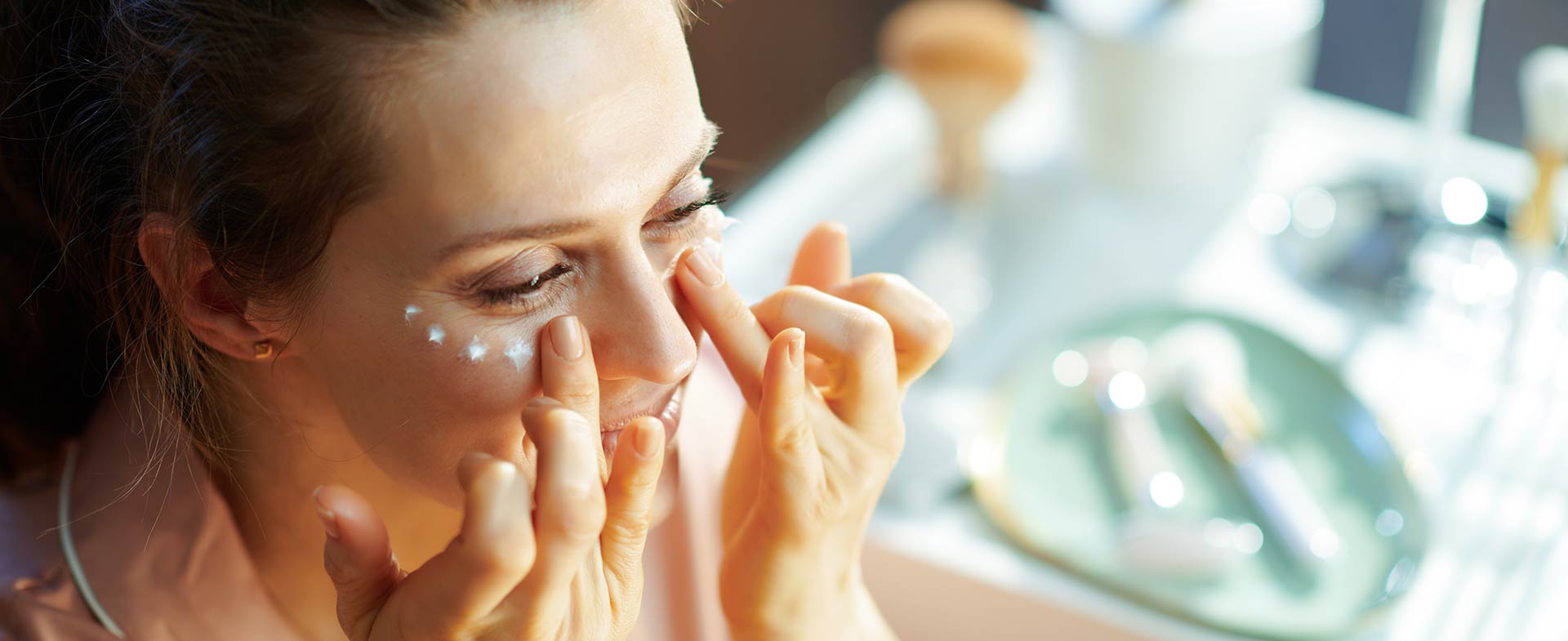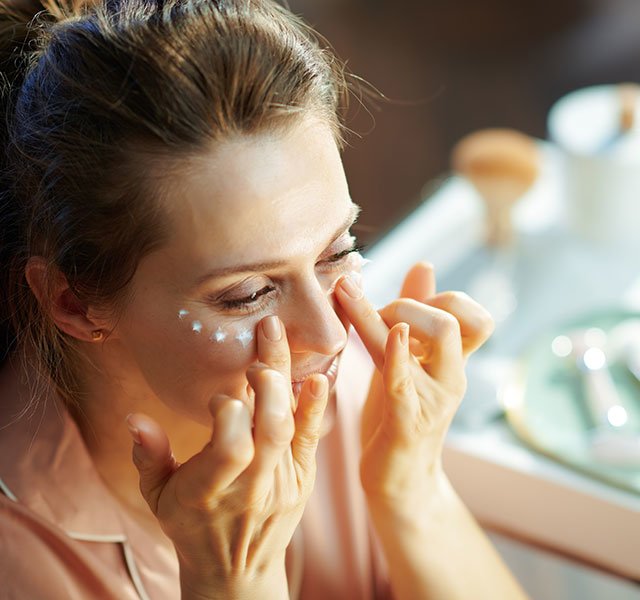When you meet someone for the first time, your eyes are the first thing they see. In the age of COVID-19 when we're all wearing masks, that’s even more true. Unfortunately, the fragile skin around the eyes is vulnerable to damage from the elements.
"The skin around the eyes is the thinnest skin on your body," says Alison Tisack Boucher, M.D., a dermatologist at Henry Ford Health. "It can be the first area to show signs of aging and the first to react when you have an allergy."
Common Concerns About The Area Around The Eyes
There are thousands of eye creams on the market. Yet the claims they make aren't regulated. The end result: Most of us are left scratching our heads about how to address common issues near our eyes like dark circles, puffiness or wrinkles.
We asked Dr. Boucher for insight about consumers' top cosmetic concerns about their eyes or the area around their eyes— and appropriate antidotes.
Dark circles
Dark circles are often genetic. They tend to appear where there are visible blood vessels under thin skin or volume loss from aging. The skin itself can darken, too, particularly among certain ethnic groups.
The antidote: Remedies for dark circles range from concealer and over-the-counter creams to laser treatments and soft tissue fillers. If you want a do-it-yourself option, look for over-the-counter skin creams for the area around your eyes that contain caffeine. "Caffeine constricts blood vessels, which can help lighten dark circles," Dr. Boucher says. "Some creams even contain reflective pigments, which can help make eyes look brighter."
Crow's feet
Crow's feet appear when the skin folds that show when you smile become more permanent as the years pass. "Crow's feet are essentially expression lines that become etched into your skin," Dr. Boucher says.
The antidote: Anything you can do to slow down the aging process will help minimize the appearance of crow's feet. Wear a mineral sunscreen containing titanium and zinc around the eyes (they're less irritating) and apply over-the-counter or prescription retinol cream. If damage is severe, or you want to take a more aggressive approach, talk to your dermatologist about prescription Retin-A, Botox® and microneedling.
Eye puffiness
Eye puffiness stems from a combination of age and genetics. You might notice an unsightly pad of fat underneath your eyes. Puffiness can also happen when you're sleep-deprived.
The antidote: Products containing caffeine can help here, too. The dual-action ingredient shrinks blood vessels and reduces water retention. Better yet, find a product with caffeine and antioxidants like vitamins A, E and C to help calm swelling.
Tired eyes
Tired eyes happen for many reasons. Maybe you aren't getting enough sleep. Or maybe you indulged in too much merrymaking. Tired eyes can also develop when you're eating too much junk.
The antidote: Focusing within is the quickest way to liven up tired eyes. Get sufficient sleep each night and make sure you're eating a healthful diet and drinking plenty of water. Beyond that, the standard antidotes apply: Over-the-counter creams with caffeine and vitamins A, E and C, and reflective pigments to help camouflage the exhaustion.
Skin Care Tips For Your Your Eyes And Undereye Area
An effective skin care routine for your eye area doesn't have to be complicated or expensive. In fact, you really only need three key ingredients: a gentle cleanser, moisturizer, and over-the-counter or prescription vitamin A cream to address problem areas.
A few things you can do to protect your most valuable skin and eyes:
- Be gentle. Use a soft touch when you're applying products around your eyes. "Use your ring finger because it's the weakest finger and dab around the eye instead of rubbing," Dr. Boucher suggests.
- Hydrate. Make sure your skin is hydrated, especially when the air outside is cold and dry. "If your skin is not hydrated it’s going to look more wrinkled and flat," Dr. Boucher says. Your best bet: Drink plenty of water and use an over-the-counter eye repair cream like Cerave or Neutrogena. Both products help lock in moisture.
- See a dermatologist. If you have specific eye area concerns, such as fine lines, wrinkles, dark circles and other signs of aging, check in with a dermatologist. Doctors have an arsenal of tools to address problem areas.
To find a doctor or dermatologist at Henry Ford, visit henryford.com or call 1-800-HENRYFORD (436-7936).
Dr. Alison Boucher is a dermatologist who sees patients at Henry Ford Medical Centers in West Bloomfield (Farmington Road), Detroit (New Center One) and Troy.



